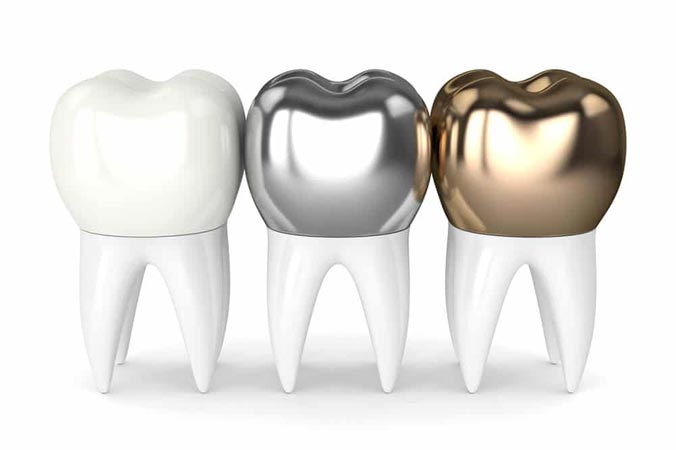
Common Dental Crown Materials and Their Benefits
If it has been some time since you saw your dentist, and you haven’t taken care of your teeth, then you may be in for some surprises. While cleaning, fillings, root canals and extractions can be popular treatment methods, crowns are another one with many different benefits. If your dentist has recommended a crown, but you’re not sure what that entails, then read on.
What is a Dental Crown?
A dental crown is a cap that your dentist cements onto your tooth. Once it’s in place, only a dentist can remove it. A crown’s role is to cover a damaged tooth, strengthen it, improve your tooth alignment, and make it look better than it did before.
A dental crown can be quite a complex procedure, so your dentist may recommend a temporary one while they create a more permanent one to put in its place.
What Types of Dental Crowns Can You Get?
Everyone’s mouth is different, so the selection of dental crowns is as well. There are four primary types your dentist might recommend. Ceramic is the more popular option for restoring your front teeth. They are of a porcelain-type material and blend in with the natural colours of your tooth.
A porcelain crown with a metal fusion is also popular as it’s stronger than standard porcelain. It’s also more durable as it fuses to the metal. Then there’s gold. A gold alloy dental crown is a mix of copper, gold, and various other metals. It bonds strongly to your teeth, doesn’t wear, and doesn’t crack either.
A base metal alloy dental crown is the final material type. It features non-noble metals, is corrosion-resistant, and your dentist doesn’t have to remove much healthy tooth to fit it. What’s more, it’s exceptionally durable. Your dentist will weigh up the pros and cons of each option, depending on your situation, to choose the right dental crown for you.
What Are the Benefits of Getting a Dental Crown?
Not every dental problem is solved with a crown, but there will be several situations where it’s the best solution.
Dental crowns are ideal for strengthening weak teeth and restoring them to their natural size and shape. They can also reduce the risk of breakages in a previously weak tooth.
Your dentist may also recommend a dental implant to cover a dental implant or discoloured teeth, or for holding a filling in place. They are also exceptionally useful for attaching to bridges and enhancing the appearance of your teeth.
Dental crowns are not for everyone. They serve the purpose of restoring your teeth or tooth to its almost-former glory. The next time you see your dentist for a check-up, you’ll be well-informed about what a dental crown involves if they suggest it as a form of treatment.
